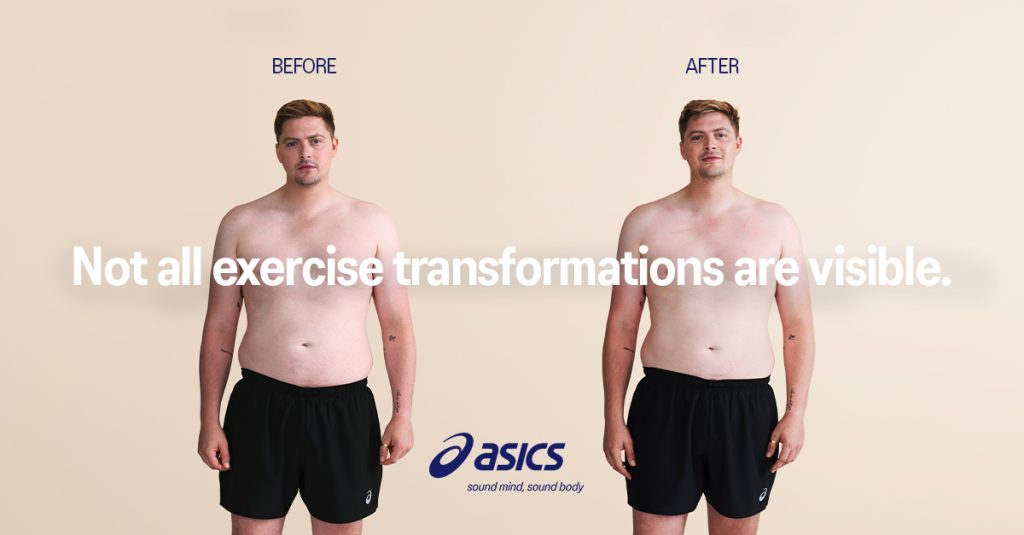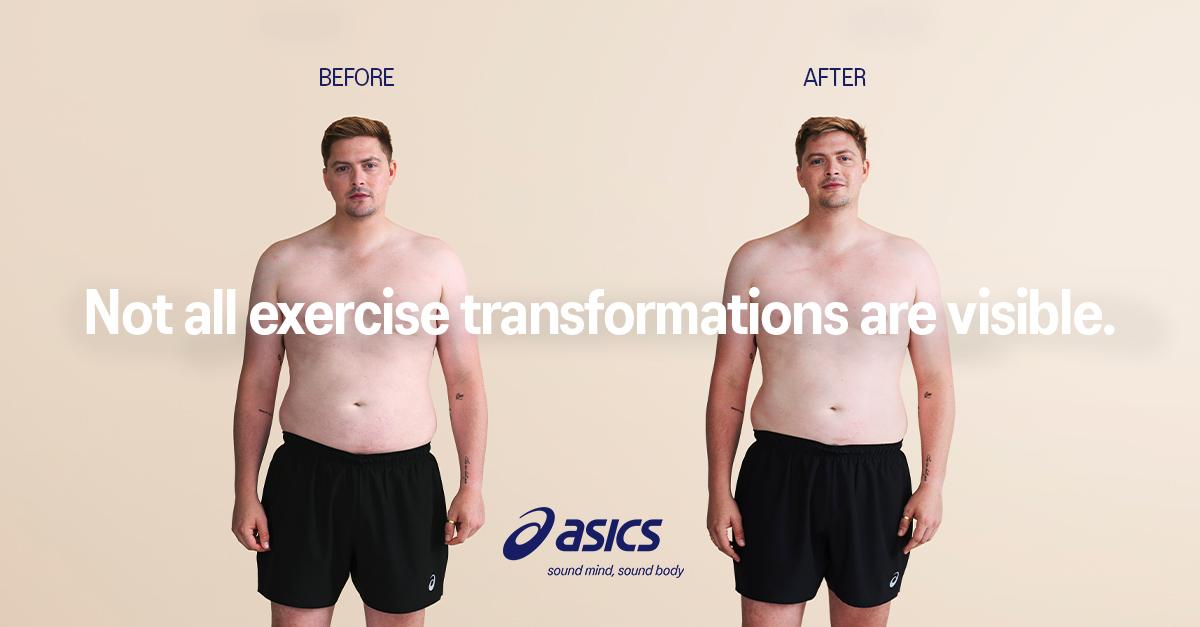Society’s obsession with the perfect body is damaging our mental health. Today, on World Mental Health Day, ASICS is shining a light on why the most important transformation to consider isn’t physical.
Supported by Mind, the #DramaticTransformations campaign disrupts the world of ‘before’ and ‘after’ exercise pictures to highlight the transformative power of exercise on the mind and to challenge society’s need to see aesthetic transformation from exercise.
Supported by A&E Doctor and TV Personality Dr Alex George, Creator and Philanthropist Jada Sezer, as well as TV Host and Professional Dancer Motsi Mabuse, ASICS worked with award-winning portrait photographer Sophie Harris Taylor to create a series of images that show each celebrity before and after 15 minutes and 9 seconds of exercise, the length of time proven to lift our mental state3. There is, of course, no dramatic physical change between the two images, highlighting that not all exercise transformations are visible.
The talent shared the photographs on their social channels, then on World Mental Health Day revealing the true mental transformation that had occurred and the purpose of the campaign. They also sat down with Mind Charity representative, Hayley Jarvis, to discuss the damaging impact of body transformation images and how exercise has improved their mental health.

The campaign was supported by new ASICS research shows that nearly three-quarters (73%) of Brits believe society’s obsession with the perfect body is damaging our mental health. 80% are demotivated by exercise transformation images and nearly half (48%) feel insecure about their bodies after seeing ‘before and after’ images.
ASICS EMEA has committed to ban exercise transformation photographs that focus purely on aesthetic transformation on its channels, only sharing images that reflect the uplifting feeling movement brings: the powerful mental and emotional impact of exercise on the whole self – body and mind.
The integrated campaign is running across OOH, digital, social and earned – targeting the key places exercise transformation photos appear, including gyms, Men’s and Women’s Health titles and social media.
Speaking about his own experience with exercise, Dr Alex George said: “I have been on a real journey with exercise and the reasons why I do it. When I was younger, I really used exercise as a weapon, to try and look thin, to look a certain way. When I went on Love Island a few years later, I was over training, and it wasn’t good for my mental health. Now, I’ve changed the way I view exercise and it’s really helped my mental health. I move for my mind, rather than to look a certain way.”

Jada Sezer commented: “It’s great that ASICS is challenging the use of body-transformation pictures because for me it’s never been about a physical transformation, more of a mental transformation. If I feel good mentally, then I’ve achieved my goal. No pain, no gain, has never resonated with me, it’s always been about how it makes me feel, not look. And I’m proud to be part of a campaign that represents this.”
Gary Raucher, EVP, ASICS EMEA said:“The culture of ‘body transformation’ images, driven largely through social media, has conditioned society to view exercise through the lens of physical change. At ASICS, we believe the true benefit of sport and movement goes beyond the body to also uplift the mind. That’s why we’re called ASICS – Anima Sana in Corpore Sano, or a Sound Mind in a Sound Body.”
Hayley Jarvis, Head of Physical Activity at Mind, said: “Mind is a firm believer in the power of movement, however small, to support better mental health. Our aim is to support more people to get active to help them to thrive. Our own research shows that many people are put off exercising because they feel self-conscious. The more we can do to remove the barriers to people enjoying the benefits of exercise, the better.”
Al Wood, Executive Creative Director at Golin, said: “Body transformation pictures are everywhere, suggesting to people that exercise should be about extreme physical change. It’s elitist and demotivating. This campaign aims to balance the conversation by showing that, whatever your body or athleticism, you can experience a dramatic mental transformation from exercise. More important than a six pack.”
To find out more about the ASICS Dramatic Transformation campaign, visit www.asics.com/dramatictransformation

